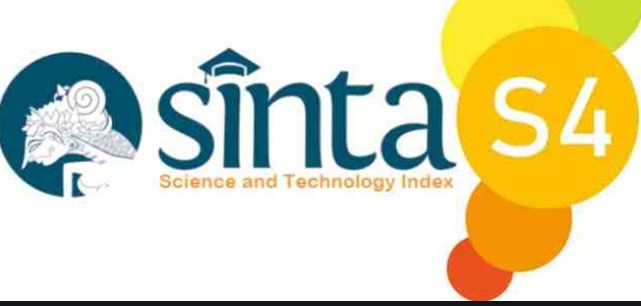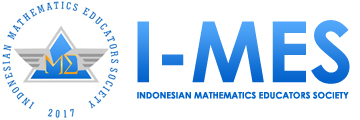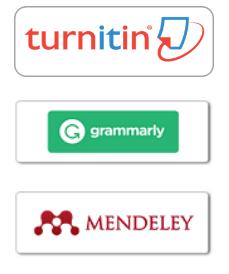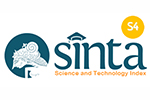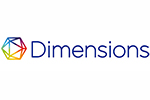SELF-DIRECTED LEARNING: A KEY FACTOR IN MATHEMATICAL LOGICAL COURSES
DOI:
https://doi.org/10.36706/jls.v6i2.56Keywords:
Self-directed learning, Academic achievement, Mathematical logicAbstract
This study examines the effect of learning independence on student academic achievement in mathematical logic courses. Using the survey method, the study involved 72 second semester students at Indraprasta PGRI University who were randomly selected using proportional cluster random sampling technique. The research instruments included a learning independence questionnaire and a mathematical logic comprehension test, which were tested for validity through content validity and reliability using Cronbach's Alpha with a value of 0.68. The results of linear regression analysis showed that learning independence has a positive and significant effect on understanding mathematical logic, with each one-point increase in learning independence increasing learning outcomes by 0.527 points. However, this study has limitations, including the scope of the sample being limited to one university and potential respondent bias due to measurement through self-report questionnaires. This study recommends lecturers to adopt methods such as project-based learning to encourage students' learning independence. This recommendation can improve students' understanding of material that requires in-depth analysis. Further research is expected to involve a more diverse sample and use a longitudinal design to explore the impact of learning independence in more depth.
Downloads
References
Akpen, C. N., Asaolu, S., Atobatele, S., Okagbue, H., & Sampson, S. (2023). Impact of Online Learning on Student Engagement and Academic Performance. Praxis International Journal of Social Science and Literature, 6(7), 29–40. https://doi.org/10.51879/pijssl/060703
Aljermawi, H., Ayasrah, F., Al-Said, K., Abu- Alnadi, H., & Alhosani, Y. (2024). The effect of using flipped learning on student achievement and measuring their attitudes towards learning through it during the corona pandemic period. International Journal of Data and Network Science, 8, 243– 254. https://doi.org/10.5267/j.ijdns.2023.9.027
Alwi Maulana, K., Nisa Astuti, K., Millenia, N., & Shafira Ridha, S. (2022). Pengaruh Kemandirian Belajar Siswa Pada Pembelajaran Daring Terhadap Prestasi Belajar Matematika. Original Research, 2(80), 41–48.
Aristovnik, A., Karampelas, K., Umek, L., & Ravšelj, D. (2023). Impact of the COVID-19 pandemic on online learning in higher education: a bibliometric analysis. Frontiers in Education, 8(August), 1–13. https://doi.org/10.3389/feduc.2023.1225834
Bandura, A. (2001). S OCIAL C OGNITIVE T HEORY : An Agentic. Annu. Rev. Psychol., 52, 1–26. Calucag, L., Aleta, B., & Ahmed, H. (2023). Exploring the Self-Directed Learning Readiness Correlates of Academic Achievement of the Practicum Engineering Students.
https://doi.org/10.1109/ICETAS59148.2023.10346402
Doo, M. Y., Zhu, M., & Bonk, C. (2023). Influence of self-directed learning on learning outcomes in MOOCs: A meta-analysis. Distance Education, 44, 1–19. https://doi.org/10.1080/01587919.2022.2155618
Gureckis, T. M., & Markant, D. B. (2012). Self-Directed Learning: A Cognitive and Computational Perspective. Perspectives on Psychological Science, 7(5), 464–481. https://doi.org/10.1177/1745691612454304
Hwee, J., Koh, L., & Daniel, B. K. (2022). Shifting online during COVID ‑ 19 : A systematic review of teaching and learning strategies and their outcomes. International Journal of Educational Technology in Higher Education, 7. https://doi.org/10.1186/s41239-022-00361-7
Lin, X., Zhan, Z., Zhang, X., & Xiong, J. (2023). Exploring the Effectiveness of a SPOC Learning Analytics System Based on Attribution Theory: Evaluation Framework and Educational Experiment. IEEE Trans. Learn. Technol., 17, 98–111. https://doi.org/10.1109/TLT.2023.3268276
Martinez-Carrascal, J. A., Munoz-Gama, J., & Sancho-Vinuesa, T. (2024). Evaluation of Recommended Learning Paths Using Process Mining and Log Skeletons: Conceptualization and Insight into an Online Mathematics Course. IEEE Transactions on Learning Technologies, 17, 555–568. https://doi.org/10.1109/TLT.2023.3298035
Meir, E., Pope, D., Abraham, J. K., Kim, K. J., Maruca, S., & Palacio, J. (2023). Designing Activities
to Teach Higher-Order Skills: How Feedback and Constraint Affect Learning of Experimental Design. CBE—Life Sciences Education, 23(1), ar1. https://doi.org/10.1187/cbe.22-08-0158
Mercado, J. C. (2024). Self-Directed Learning in STEM Teaching and Learning: A Systematic Review of Empirical Evidence. Scientechno: Journal of Science and Technology, 3(1), 53–84. https://doi.org/10.55849/scientechno.v3i1.739
Paredes-Velasco, M., Lozano-Osorio, I., Perez-Marin, D., & Santacruz-Valencia, L. P. (2024). A Case Study on Learning Visual Programming with TutoApp for Composition of Tutorials: An Approach for Learning by Teaching. IEEE Transactions on Learning Technologies, 17, 498–513. https://doi.org/10.1109/TLT.2022.3226122
Pintrich, P. R., & De Groot, E. V. (1990). Motivational and Self-Regulated Learning Components of Classroom Academic Permormance. Journal of Educational Psychology, 82(1), 33–40. https://doi.org/10.1007/BF02338175
Santoso, H. B., Riyanti, R. D., Prastati, T., S, F. A. T. H., Susanty, A., & Yang, M. (2022). education sciences Learners ’ Online Self-Regulated Learning Skills in Indonesia Open University : Implications for Policies and Practice.
Smith, V. D., & Darvas, J. W. (2005). ENCOURAGING STUDENT AUTONOMY THROUGH HIGHER ORDER THINKING SKILLS. 29–34.
Stajkovic, A., & Sergent, K. (2019). Social Cognitive Theory A Model of Triadic Influences.
Management- Oxford Bibliographies, 11(26), 1–14. https://doi.org/10.1093/obo/9780199846740-
Suhendri, H. (2011). Pengaruh Kecerdasan Matematis–Logis dan Kemandirian Belajar terhadap Hasil Belajar Matematika. Formatif: Jurnal Ilmiah Pendidikan MIPA, 1(1), 29–39. https://doi.org/10.30998/formatif.v1i1.61
Wang, G., Ding, J., & Yang, Y. (2023). SET-VALUED CATEGORICAL PREDICTORS. Statistica Sinica, 33, 2545–2560.
Wang, Q., & Huang, Q. (2024). Engaging Online Learners in Blended Synchronous Learning: A Systematic Literature Review. IEEE Transactions on Learning Technologies, 17, 594–607. https://doi.org/10.1109/TLT.2023.3282278
Wasyilah, W., Yusrizal, Y., & Ilyas, S. (2021). Application of Self Directed Learning Model to Improve Student’s Independence and Critical Thinking Skills. Jurnal Penelitian Pendidikan IPA, 7(4), 651–659. https://doi.org/10.29303/jppipa.v7i4.784
Wong, F. M. F., Tang, A. C. Y., & Cheng, W. L. S. (2021). Factors associated with self-directed learning among undergraduate nursing students: A systematic review. Nurse Education Today, 104(May), 104998. https://doi.org/10.1016/j.nedt.2021.104998
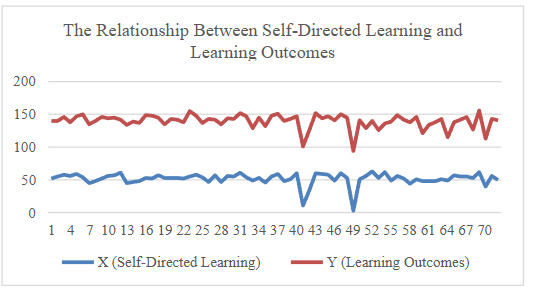
Downloads
Published
How to Cite
Issue
Section
Citation Check
License
Copyright (c) 2024 Rezkiyana Hikmah, Lin Suciani Astuti, Noni Selvia, Ermita Ermita, Scristia

This work is licensed under a Creative Commons Attribution 4.0 International License.


